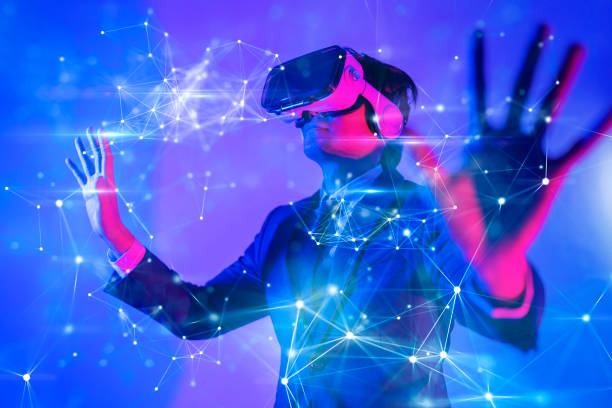Gamification in Professional Development: Leveling Up Your Career
In today's competitive job market, innovative approaches to professional growth are becoming increasingly important. One such approach that's gaining traction is the integration of gamification principles into career development strategies. This article explores how gamification is revolutionizing the way professionals learn, grow, and advance in their careers, offering a fresh perspective on skill acquisition and motivation in the workplace.

The Genesis of Gamification in Professional Settings
The concept of gamification in professional development emerged at the intersection of game design, behavioral psychology, and organizational learning theories. While games have long been recognized for their ability to engage and motivate, it wasn’t until the early 2010s that businesses began seriously exploring their potential in non-gaming contexts.
The rise of digital technologies and the increasing focus on employee engagement paved the way for gamification’s entry into the corporate world. Early adopters found that by incorporating elements like points, badges, and leaderboards into training programs and performance management systems, they could significantly increase participation and improve outcomes.
As the field matured, more sophisticated applications of gamification principles emerged. Companies began developing complex simulations and role-playing scenarios to help employees practice critical skills in safe, virtual environments. These gamified experiences allowed professionals to experiment, fail, and learn without real-world consequences, accelerating skill development and confidence building.
Core Principles of Gamification in Career Development
At the heart of effective gamification in professional development are several key principles derived from game design and motivational psychology. The first is the concept of clear goals and measurable progress. Just as games provide players with explicit objectives and visual representations of their advancement, gamified career development systems offer professionals concrete targets and ways to track their growth over time.
Another crucial principle is the balance between challenge and achievability. Well-designed games maintain a sweet spot of difficulty that keeps players engaged without overwhelming them. In professional development, this translates to setting stretch goals that push individuals out of their comfort zones while still being attainable with effort and persistence.
Feedback loops are also essential. Games provide immediate feedback on actions, allowing players to adjust their strategies in real-time. Similarly, gamified professional development tools offer frequent, actionable feedback on performance, enabling professionals to continuously refine their skills and approaches.
Practical Applications in the Workplace
The implementation of gamification in professional development takes various forms across industries. One common application is in onboarding and training programs. Companies are creating interactive, game-like experiences to introduce new hires to company culture, policies, and job-specific skills. These gamified onboarding systems not only make the process more engaging but also allow new employees to absorb information at their own pace and in a low-pressure environment.
In ongoing skill development, organizations are using gamification to encourage continuous learning. For example, some companies have implemented digital platforms where employees can earn points or badges for completing training modules, attending workshops, or contributing to knowledge-sharing initiatives. These systems often include leaderboards or social elements, fostering a sense of healthy competition and community around learning.
Performance management is another area where gamification is making significant inroads. Traditional annual reviews are being supplemented or replaced by more dynamic systems that track performance metrics in real-time, visualize progress towards goals, and provide regular opportunities for recognition and rewards.
Benefits and Challenges of Gamified Career Development
The benefits of integrating gamification into professional development are numerous. Research has shown that well-implemented gamification strategies can increase engagement, improve knowledge retention, and boost motivation. By making the process of skill acquisition and career advancement more enjoyable and interactive, gamification can help professionals maintain long-term commitment to their growth.
Moreover, gamified systems often provide rich data on employee performance and learning patterns. This information can be invaluable for both individuals and organizations in identifying strengths, weaknesses, and areas for improvement. It allows for more personalized development plans and targeted interventions.
However, the implementation of gamification in professional settings is not without challenges. One of the primary concerns is the potential for gamification to oversimplify complex tasks or reduce intrinsic motivation. If not carefully designed, gamified systems can lead to a focus on extrinsic rewards at the expense of genuine skill development and job satisfaction.
There’s also the risk of creating unhealthy competition or stress among employees if leaderboards and point systems are overemphasized. Balancing individual achievement with collaborative goals is crucial to maintaining a positive work environment.
The Future of Gamification in Career Advancement
As technology continues to evolve, so too will the applications of gamification in professional development. Virtual and augmented reality technologies are opening up new possibilities for immersive, gamified training experiences. These technologies could allow professionals to practice complex skills or decision-making in highly realistic simulations.
Artificial intelligence and machine learning are also set to play a significant role in the future of gamified career development. AI-powered systems could provide even more personalized learning experiences, adapting in real-time to an individual’s performance and preferences.
The integration of gamification with other emerging trends in professional development, such as microlearning and social learning platforms, is likely to create more holistic and effective career advancement ecosystems. These integrated systems will offer professionals a diverse array of tools and approaches to support their growth throughout their careers.
As the workforce continues to evolve and the demand for continuous skill development increases, gamification stands poised to play an increasingly important role in how professionals approach their career advancement. By harnessing the power of game design principles to make learning and growth more engaging, measurable, and rewarding, gamification is helping to create a more dynamic and adaptable workforce ready to meet the challenges of the future.






